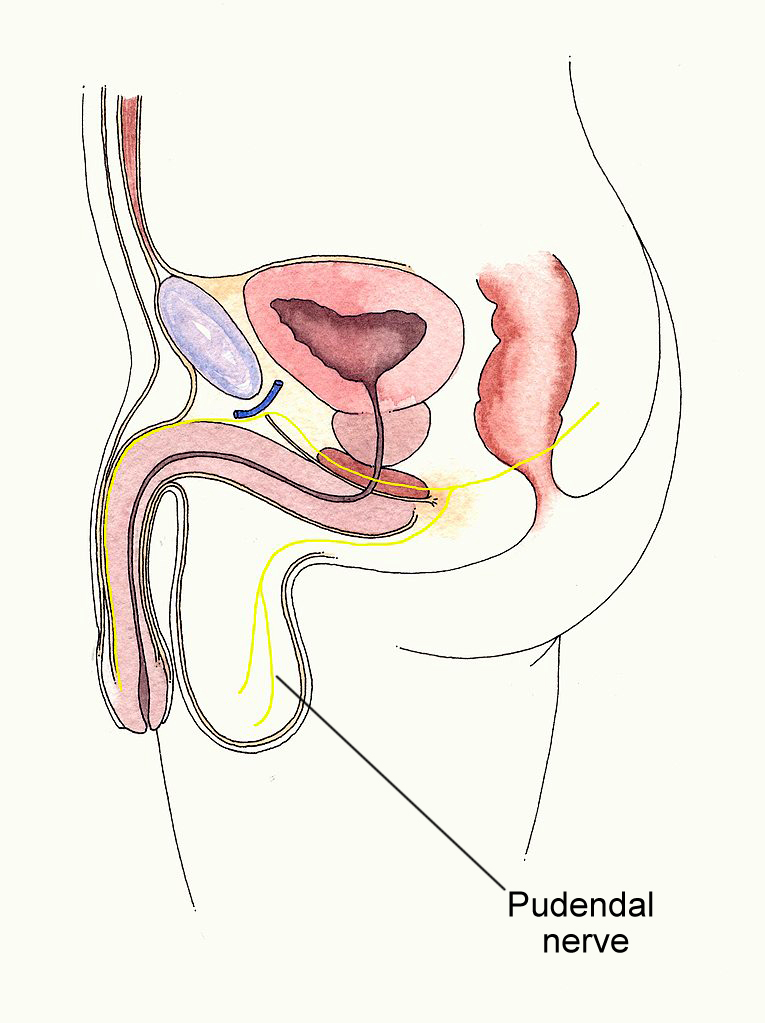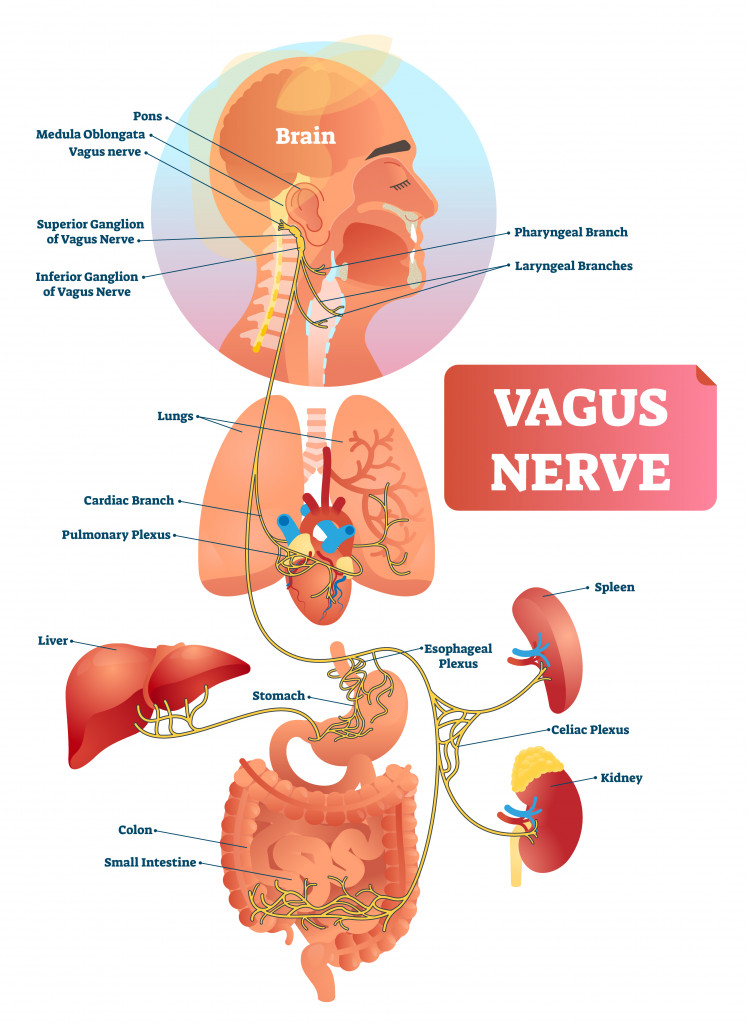Table of Contents (click to expand)
The satisfaction, relief and even pleasure you feel after a good pooping session is due to the stimulation of two nerves: the pudendal nerve and the vagus nerve. Both have slightly different effects, but together they contribute to that sense of relief.
If each session on the pot takes us about 12 minutes, then humans spend a whopping 73 hours a year just pooping! And after most of those minutes, we feel a sense of serene relief, as if life suddenly has fewer burdens.
Why do we feel so good after pooping? As much as it is necessary for us to poop, we can’t deny that we also enjoy doing so on a certain level.

With that in mind, let’s try to answer the million-dollar question.
You need to poop to get rid of the body’s waste and undigested food, while also making room for more food in your digestive system. However, the pleasure doesn’t only come from clearing your bowels; it also lies in the stimulation of certain nerves in the body.
The Pudendal Nerve
The pudendal nerve is a mixed nerve (one with both sensory and motor nerves) that is primarily responsible for the sensory and motor innervation of the perineum and external genitalia in both genders. The perineum is the region between the anus and the genitalia. The nerve passes through your pelvis and the gluteal area (i.e., your buttocks) at the top of the thigh bone, and links to the nerves that arise from the spinal cord.
You have a pudendal nerve on both the left and right sides of your body
The pudendal nerve is responsible for most of the movement and sensations that occur in your pelvic area, including those in your external genitalia and anus, as well as the muscles that allow you to release your poop into the pot.

Pooping leads to the stimulation of this nerve. Since the nerve innervates the anus and the genitalia, and is responsible for sensory input, including pleasure, when it is stimulated, it leads to a certain amount of arousal and pleasure.

The Vagus Nerve
The colon in the large intestine is connected to the brainstem by a long nerve called the vagus nerve. A major nerve of the nervous system, the vagus nerve regulates a wide range of vital body processes, including mood, digestion, immunological response, and heart rate.
The vagus nerve transmits signals from the digestive system and other organs to the brain and back. It is the tenth cranial nerve (nerve arising directly from the brain) and travels from the brainstem, where it originates, down the neck and into the belly.

When you poop, muscles in the buttocks and pelvic region relax. This stimulates the vagus nerve, which can make your heart rate and blood pressure go down, leaving you feeling relaxed for a short time.
However, keep one thing in mind before you go and over-stimulate your vagus nerve for that “poo-phoria.” Overstimulation of the vagus nerve can also be unhealthy. Instead of the pleasure you’re craving, it can cause you to pass out on the toilet!
Also Read: Why Does It Feel Weird In The Stomach When We Are Hurt Emotionally?
The Muscles
Certain muscles in your body tighten up, notably your internal and external anal sphincters, to prevent poop from escaping at inconvenient times. Your internal anal sphincter is an autonomic muscle that doesn’t require any conscious thinking, but your exterior anal sphincter is under your control.
The remaining muscles in the digestive tract are responsible for moving food through the system. The cumulative effect of all these contractions is a rise in abdominal pressure. I’m sure you know the feeling!
The majority of what we experience as normal is the enlargement of the bowels caused by the presence of air, fluid, or stool.
When we poop, not only are we relieved of this strain, but we also give our muscles the much-needed relaxation they require.
Also Read: What Is The Right Posture For Pooping?
A Final Word
Imagine it’s your day off from school. You are cozy in bed watching TV, when you feel the urge to poop.
Many people in this circumstance may feel like their bodies have betrayed them, making them feel helpless and weak. You feel like you have no control over your body or intestines. Therefore, normal bowel movements can help to allay this concern. Once you do visit the toilet, that satisfaction and relaxation is all you needed. The vagus nerve plays a role behind this experience too.
The vagus nerve, when stimulated during your visit to the loo, lowers the blood pressure and heart rate, giving you that much-needed relaxation.
Finally, we know why we feel so good after taking a visit to the bathroom!
How well do you understand the article above!

References (click to expand)
- Yu, S. W. B., & Rao, S. S. C. (2014, February). Anorectal Physiology and Pathophysiology in the Elderly. Clinics in Geriatric Medicine. Elsevier BV.
- What color is your poop and other pressing fecal matters. The UC San Diego Medical Center, Hillcrest
- HOW OFTEN DOES THE AVERAGE PERSON POOP?. The University of Massachusetts Amherst
- Constipation - Health Encyclopedia - URMC. The University of Rochester Medical Center
- Bowel health - HealthyWA. healthywa.wa.gov.au
- Breit, S., Kupferberg, A., Rogler, G., & Hasler, G. (2018, March 13). Vagus Nerve as Modulator of the Brain–Gut Axis in Psychiatric and Inflammatory Disorders. Frontiers in Psychiatry. Frontiers Media SA.
- (2021) Anatomy, Abdomen and Pelvis, Pudendal Nerve - NCBI. The National Center for Biotechnology Information
- Shafik, A., El-Sherif, M., Youssef, A., & Olfat, E.-S. (1995). Surgical anatomy of the pudendal nerve and its clinical implications. Clinical Anatomy. Wiley.
- (2021) Neuroanatomy, Spinal Nerves - StatPearls - NCBI Bookshelf. The National Center for Biotechnology Information
- Tigga, M. (2019). An unusual case of defecation syncope. Journal of Mid-life Health. Medknow.
- Ogle, K. T. (2012, May). Is your patient having a vasovagal reaction?. Nursing Made Incredibly Easy!. Ovid Technologies (Wolters Kluwer Health).
